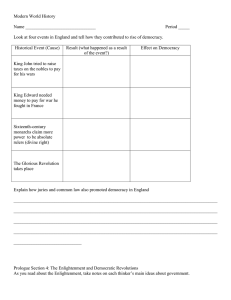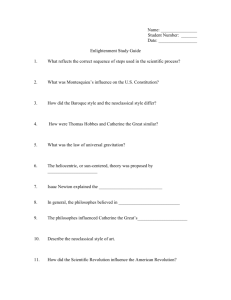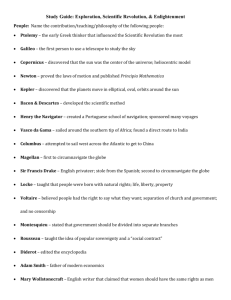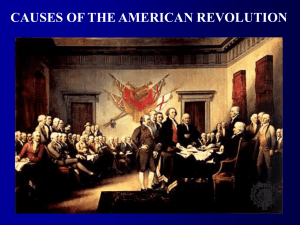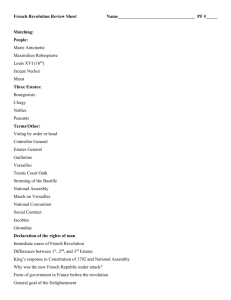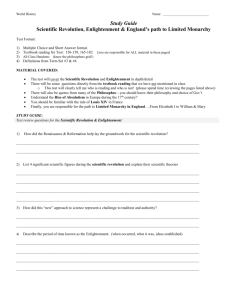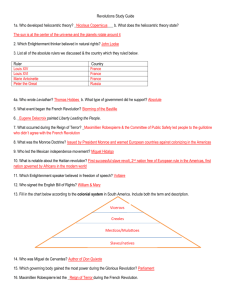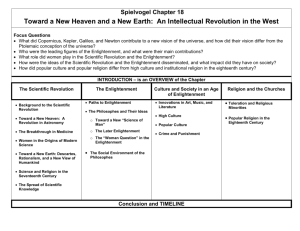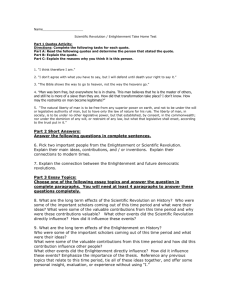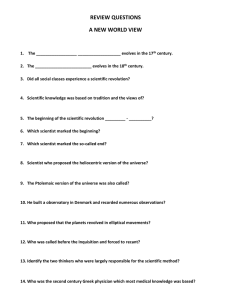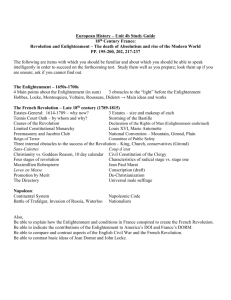Absolutism, Enlightenment, Revolutions Test
advertisement
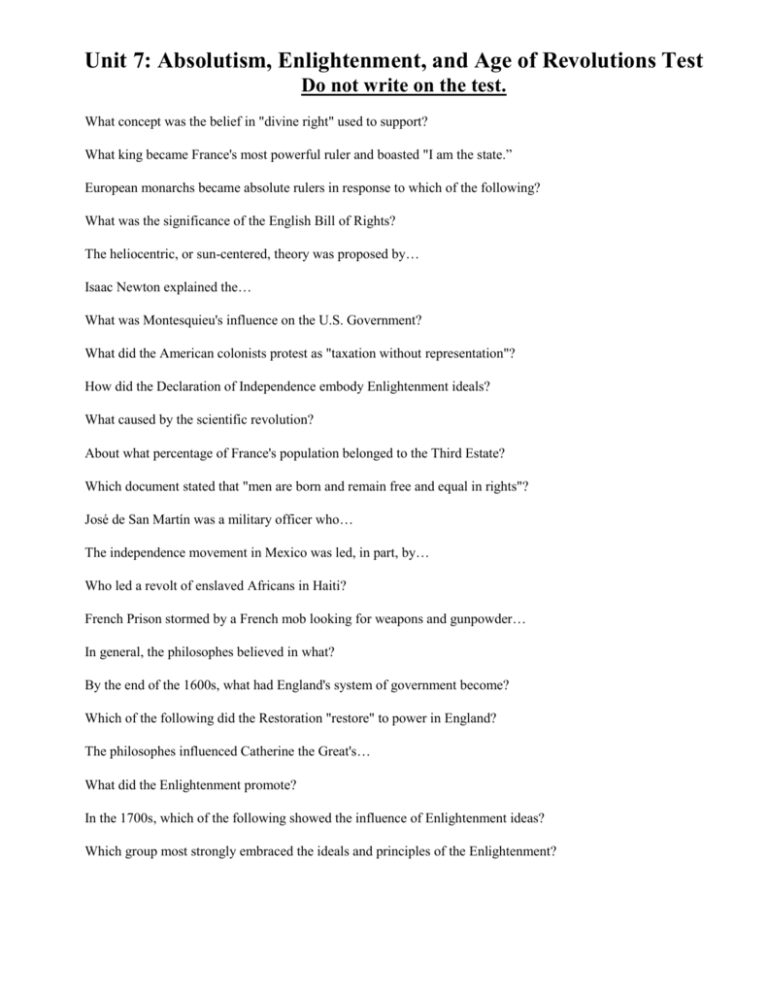
Unit 7: Absolutism, Enlightenment, and Age of Revolutions Test Do not write on the test. What concept was the belief in "divine right" used to support? What king became France's most powerful ruler and boasted "I am the state.” European monarchs became absolute rulers in response to which of the following? What was the significance of the English Bill of Rights? The heliocentric, or sun-centered, theory was proposed by… Isaac Newton explained the… What was Montesquieu's influence on the U.S. Government? What did the American colonists protest as "taxation without representation"? How did the Declaration of Independence embody Enlightenment ideals? What caused by the scientific revolution? About what percentage of France's population belonged to the Third Estate? Which document stated that "men are born and remain free and equal in rights"? José de San Martín was a military officer who… The independence movement in Mexico was led, in part, by… Who led a revolt of enslaved Africans in Haiti? French Prison stormed by a French mob looking for weapons and gunpowder… In general, the philosophes believed in what? By the end of the 1600s, what had England's system of government become? Which of the following did the Restoration "restore" to power in England? The philosophes influenced Catherine the Great's… What did the Enlightenment promote? In the 1700s, which of the following showed the influence of Enlightenment ideas? Which group most strongly embraced the ideals and principles of the Enlightenment? Which group imposed the Reign of Terror? What is an accurate description of the tax system in France in the years preceding the French Revolution? What concept was the belief in “divine right” used to support? What did the Glorious Revolution bring to England’s throne? What king became France’s most powerful ruler and boasted “I am the state”? What did the Restoration restore to power in England? What did Frederick the Great believe a ruler should be? How were the ideas of the Scientific Revolution a threat to the powers that were already established in Europe? Explain two causes of political revolution AND provide one specific example. For Questions 31-34 Select the letter of the term, name, or phrase that best matches each description. Note: Some letters may not be used at all. Some may be used more than once. a. b. c. d. e. Voltaire John Locke Montesquieu Thomas Hobbes Mary Wollstonecraft In A Vindication of the Rights of Women, this political thinker presented an argument for the education of women. She also declared that women should have the same political rights as men. This philosopher's masterful use of satire got him into frequent trouble with the clergy, the aristocracy, and the government of France. Despite serving two prison terms and being exiled, he never stopped fighting for tolerance, reason, freedom of religion, and freedom of speech. This political thinker felt that people are reasonable beings. He supported self-government and argued that the purpose of government is to protect the natural rights of people. If government fails to protect these natural rights, he said, citizens have the right to overthrow it. This political thinker believed that all humans are naturally selfish and wicked. He argued, therefore, that strong governments are necessary to control human behavior. To avoid chaos, he said, people enter into a social contract. They give up their rights in exchange for law and order.
